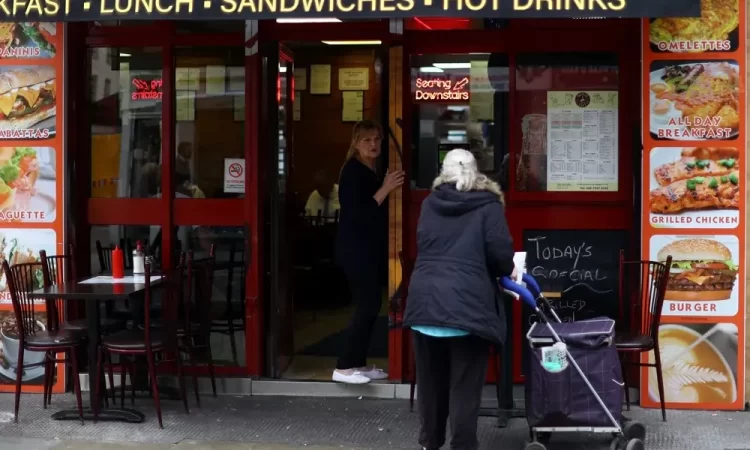
By David Milliken
LONDON (Reuters) -Britain’s economy looks on track to exit recession when official first-quarter growth data is next published, despite a slowdown in services activity last month, a closely watched business survey showed on Thursday.
The S&P Global Composite Purchasing Managers’ Index – which covers private-sector services and manufacturing firms – edged down to 52.8 for Britain in March from February’s 53.0.
This was just below a provisional reading of 52.9 but above the 50 level that divides growth from contraction for a fifth consecutive month.
The survey showed British businesses faring better than peers in France and Germany – where activity contracted – but lagging behind expansions in Italy and Spain.
“The solid growth rate achieved in March reinforces the view that a rebound in service sector performance is helping the UK economy to pull out of last year’s shallow recession,” Tim Moore, S&P Global’s economics director, said.
“Survey respondents once again commented on a turnaround in business and consumer spending, despite constraints on clients’ budgets from strong inflation and elevated borrowing costs,” he added.
Official first-quarter gross domestic product data is not due until May 10. An end to recession would be welcomed by Prime Minister Rishi Sunak who faces a big polling deficit versus the opposition Labour Party ahead of a national election he expects to hold in the second half of this year.
Thursday’s figures showed that services activity growth in March was slightly weaker than first thought, revised down to a four-month low of 53.1 from an initial reading of 53.4.
But this was largely counterbalanced by an upward revision earlier this week of the manufacturing index to 50.3 from 49.9, its first above-50 reading in nearly two years.
“We expect the economy to gradually pick up steam over the rest of the year, as lower inflation, falling interest rates and tax cuts boost consumer spending,” said Thomas Pugh, economist at RSM UK, who predicts 0.2% GDP growth for the first quarter.
There was mixed news on inflation for the Bank of England, which economists expect to follow other major central banks and cut rates in June or August.
Services businesses raised prices at the slowest rate in six months, but faster than their historic trend, adding to signs of sticky domestic inflation, S&P said. High wage growth kept firms’ costs rising rapidly, even as they kept a lid on hiring.
Britain’s minimum wage rose nearly 10% on April 1.
A separate Bank of England survey on Thursday showed businesses’ wage and selling price expectations cooled in March to their lowest in around two years.
(Additional reporting by Andy Bruce; Editing by Hugh Lawson)





